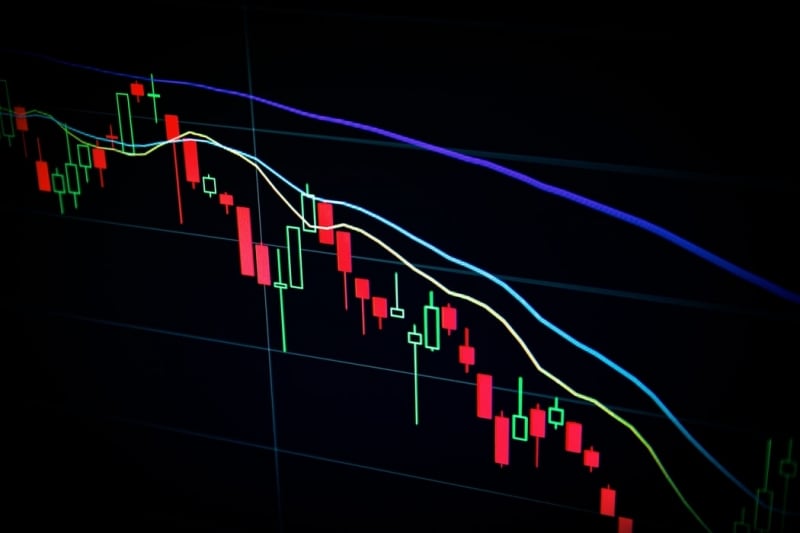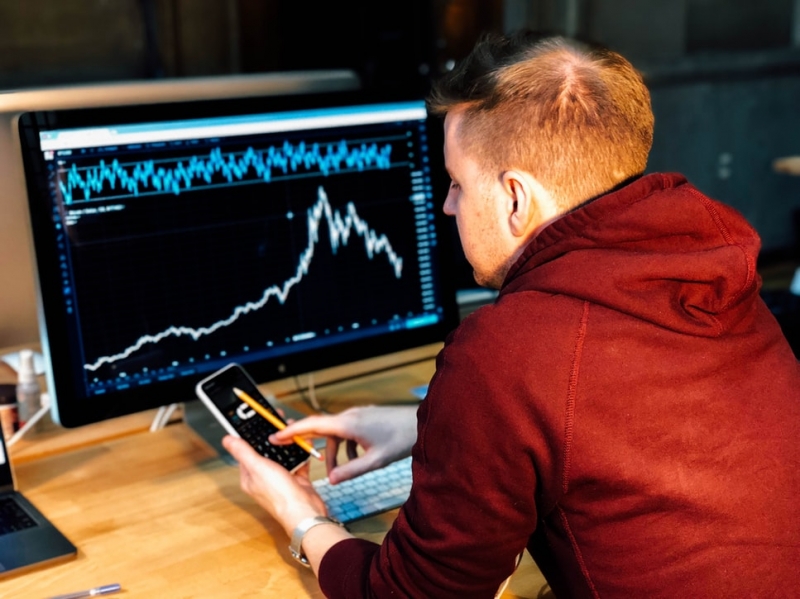You know you’ve fully arrived into adulthood when conversations about games and toys get replaced with conversations about investments and finance. In 2021, perhaps one of the most popular forms of investment is cryptocurrencies. Now, it’s not that cryptocurrencies only became popular recently. I personally heard about Bitcoin in 2013, and then again in 2017. The reason cryptocurrencies are once again popular is that we’re currently in the midst of another bull market (meaning prices are going up).
Thanks to media coverage, many people are now interested in buying and trading cryptocurrencies. But, like myself in 2017, most people don’t know where to start, or indeed, what they’re doing. Don’t worry, because I’m here with your Crypto 101 lesson! While I won’t go too in-depth, I do hope you’ll find the answer to at least some of your questions here.
Before I begin, let me just say, clearly, that nothing in this article should be taken as financial advice. It is simply an informative piece. Any decision you make after reading should be made with utmost caution and responsibility.
And with that, let’s dive right in!
What are cryptocurrencies?

Image credit: André François McKenzie
There are many ways to explain the concept of cryptocurrencies. After all, there are many factors that make them different to fiat currencies (basically the currencies we currently use). One can look at them from the perspective of security, some may be more interested in the technology behind them and more.
For the purpose of this article, let’s talk purely based on the angle of wealth and investment. Simply put, cryptocurrencies are a form of digital money. Digital money, on its own, isn’t a new concept. In a world that is becoming increasingly comfortable with e-wallets and e-payment systems (think Alipay and Apple Pay for example), the idea of money being stored and used in the form of a digital asset is no longer as alien as it used to be.
Crucially, however, all these e-wallets that we currently use simply reflect the value of the fiat currency we store. Basically, e-wallets are, as the name suggests, digital wallets. The money that is stored in them is regulated by a central bank. Cryptocurrencies, on the other hand, are not. This is what most crypto traders and investors mean when they say that cryptocurrency is a form of “decentralised finance”.
What’s good (and bad) about decentralised finance?

Image credit: Robert Bye
Let’s unpack the term “decentralised finance” a little more in terms of practicality. Those who are extremely enthusiastic about cryptocurrencies view the concept of decentralisation as a good thing, while animosity towards cryptocurrencies sometimes also stem from the very same factor.
In a traditional, centralised banking or financial system, there is usually one central institution (be it the government, the central bank or otherwise) that governs, monitors, and regulates transactions and policies related to the particular currency. While this system offers stability, it also exposes users to certain risks.
For example, in a centralised system, users need to place an enormous amount of trust in the particular central institution. Should there be any unforeseen incidents, the entire system could potentially crumble. Cast your minds back to the financial crisis of 2008. What kicked off one of the worst recessions in recent memory (discounting the current pandemic) was the bursting of the property and housing bubble during that time, which, in itself, was a consequence of central policy-making by the U.S. Federal Reserve and profiteering by several major bank CEOs at the time.

Image credit: Maxim Hopman
The sudden collapse of the housing sector pushed several major financial institutions, like the Lehman Brothers, to famously file for bankruptcy, and pushed the entire banking sector to the brink of near total collapse before U.S. government intervention (the Wall Street bailout).
But while the government was able to save the big banks on Wall Street, many of the patrons of those gargantuan institutions were less fortunate.
Asset liquidation, loss of networth due to the stock market crash (a trickle-down effect of the collapse of several institutions), unemployment, and more quickly followed for ordinary Americans. While such capitulation events are rare, the 2008 financial crisis exposed a fatal flaw in a centralised financial system. Or simply think about it this way: What happens if Google suddenly crashes for 24 hours? Gmail, Google Docs, Adsense, all of these services would suddenly become unavailable because of a flaw in the central system. You shuddered, didn’t you?
Cryptocurrencies, on the other hand, are (mostly) decentralised in the sense that they do not rely on any central authority. The U.S. Federal Reserve, for example, can’t just decide one day to discontinue the circulation of a particular crypto. Nor can they affect the (speculative) value of a crypto directly.

Image credit: André François McKenzie
What is more, most cryptocurrencies operate on a peer-to-peer (P2P) basis. This means that transactions occur simply between two parties without needing to go through a third party like a bank. It is generally quicker, more efficient, and less costly. The reason for that is due mainly to the technology (blockchain) that most cryptos use to perform transactions. However, let’s not get into the techy details in this particular article.
On the flip side, decentralised finance can also have its downsides, mainly for governments. For one, it’s difficult to tax a decentralised system in which you can’t keep track of transactions. However, even more so is the fact that, without a centralised figure to oversee transactions, it is nearly impossible to track and trace what cryptocurrencies are being used for. Allegations of terrorism funding, money laundering, and more are rife when it comes to cryptocurrencies.
TL/DR summary: Decentralised financial systems allow users to directly transact between each other. It is efficient, quick, and less costly. They also do not need to trust any particular central institution to take care of their money. On the downside, decentralised financial systems make it nearly impossible to track, depriving governments of revenue in taxes and also potentially paves the way for illicit financial activity.
Why are they valuable?

Image credit: Bermix Studio
But for people who want to invest in cryptocurrencies, perhaps the main question most people have is simply this: Why the heck are cryptocurrencies so expensive? Let’s take the two most popular cryptocurrencies as examples: Bitcoin (BTC) and Etheruem (ETH). At the time of writing, BTC is valued at $37,500/BTC while ETH is trading around the $2,700/ETH level.
To understand why cryptocurrencies are so valuable, we simply need to wrap our heads around the concept of inflation. Most people understand inflation as the cost of living going up. While that’s not entirely wrong, it’s not quite accurate either. You see, inflation isn’t the cost of living going up, it’s the value of fiat currency decreasing over time.
Let’s illustrate inflation this way: You store $1,000 in a piggy bank and bury it in the sand for ten years. After ten years, you will still have $1,000, but only in number. What I mean by this is that the amount of notes in the piggy bank remains the same. However, the spending power you have WITH those notes, will have significantly decreased. That is inflation.

Image credit: Sharon McCutcheon
So what causes inflation? The answer to that is simple: supply. The value of fiat currency decreases over time because, technically, fiat currency is an infinite resource whose supply is constantly increasing. You can always print more money.
Since March 2020, governments around the world have been launching stimulus packages to help lessen the economic impact of the pandemic. And since most governments don’t actually have “billions of dollars” just sitting around in their reserve, the only solution is to print more money (such as the U.S. $1.9 trillion stimulus bill passed earlier this year). As the central banks print more money, the value of fiat currency decreases in value.
As this happens, people will often look for a hedge against inflation. This means investing fiat currency into deflationary assets to protect the value of their money. These assets include commodities and resources that have a finite supply. Think gold, silver, oil, and yes, BTC (21 million supply cap). It’s really not a surprise that the stock, cryptocurrency, and commodities markets started to increase in value around the same time as governments around the world started printing money.
TL/DR summary: Most cryptocurrencies like BTC have a limited supply cap. This makes them viable stores of value to hedge against inflation.
How are they different from other investment opportunities?

Image credit: Austin Distel
But if that’s the case, why are people so hyped about investing into BTC and ETH these days rather than traditional stocks? There are two ways to answer this question.
The first is simply hype. Thanks to the pandemic forcing most of humanity to stay indoors, and with the dawn of apps like TikTok, many of us have become exposed to the world of cryptocurrencies and stocks. The key difference is that most young and first-time investors often view stocks as a manipulative market ruled by big institutions on Wall Street.
Cryptocurrency influencers (that’s what I’m calling them), on the other hand, are often young, 20-something year old “self-made millionaires” who enthusiastically talk about how cryptocurrency can make you “life-changing profits”. Their videos are usually more engaging and entertaining compared to videos about the stock market.

Image credit: Executium
What’s more, investing in cryptocurrencies, to some people, is just more fun. Take the entire Elon Musk – Dogecoin situation, in which the current CEO of Tesla seems hell bent on driving up the price of Dogecoin (basically a meme cryptocurrency that was originally created to make fun of BTC). It’s simply more entertaining to keep up with the cryptocurrency market, which naturally gives it more hype.
Word of extreme caution here though: Please don’t ever invest your money based solely on hype.
Moving on, for veteran cryptocurrency investors though, what makes BTC and ETH a more lucrative option is the fundamentals behind it. As the name implies, cryptocurrencies are a form of currency. It’s money that has a practical aspect. You can buy and store gold and stocks, but you can’t, for example, walk down to a pizza parlour and exchange your TESLA stock for a pepperoni pizza. On May 22, 2010, a young man named Laszlo Hanyecz (regrettably) bought two pizzas with 10,000 BTC (worth over $300 million today!).

Image credit: Austin Distel
The tragic incident aside, the fact is that, should BTC become more widely adopted as a form of payment, cryptocurrencies, in general, will start to display more functionality than traditional stocks and commodities. NFTs (Non-Fungible Tokens) that allow ordinary people to buy and store digital art (among other things) are financed and transacted using ETH.
Basically, what some crypto investors believe is that cryptocurrencies will one day replace fiat currency and become widely accepted and used. While whether or not that comes to pass, it is one of the major reasons why some people prefer to invest in cryptocurrencies compared to traditional stocks.
However, one must also realise that the value of most cryptocurrencies is purely speculative. What it means is that they are valuable because investors THINK they are valuable. Since cryptocurrencies exist in the digital space and have no physical equivalent in the real world, there is no proof (save for a bunch of code in a computer) that shows you actually own ANYTHING at all. That is why some traditional investors shy away from this new, booming market.
That being said, given the sheer size of BTC and ETH, a total capitulation event is unlikely. Still, as always, only invest using money you are willing to lose.
TL/DR summary: Most people invest in cryptocurrencies because of two things: hype, and fundamentals. Some are enticed by the prospect of life-changing wealth as perpetuated by enthusiastic Youtubers and TikTokers, while others truly believe in the long-term financial potential of cryptos.
Tips for investing

Image credit: Chris Liverani
So, before investing in cryptocurrency, there are a few things you MUST keep in mind.
For one, NEVER invest more than you are willing to lose. That’s because the crypto market is extremely volatile. I once opened a long trade (basically I believed the price would go up) on BTC at night, went to bed, and woke up the next morning with about $200 in profit. By lunch, because I didn’t cash out, it had dwindled down to $100+, and by dinner, I was at breakeven.
Secondly, NEVER FOMO into any investment. This is one of the biggest mistakes most new investors make. You’re scrolling on TikTok and suddenly you come across this guy introducing a new, never-heard-before cryptocurrency and flaunts that he/she made “100x profits” by investing in it. So, you, as a newbie who also wants 100x profits, decide to quickly put money into that project without looking up the fundamentals (who created it, who’s backing it, what’s the supply etc.) and end up losing money.
The key thing here about these insane profits is that once people HAVE made “100x profits”, it’s already too late. Take BTC for example.The price of BTC in December 2020 was around $18,000/BTC. Its current all-time high, achieved in May 2021, is $64,000/BTC. If I had invested in December, I would have made a 3 to 3.5x profit in less than six months!
However, if you invested NOW (at the price of $37.5k/BTC), you would need for BTC to rise to a value of over $120,000/BTC to achieve the same amount of profit. That would make BTC a two-trillion dollar entity (in terms of market capitalisation), which makes it more valuable than Apple and Microsoft! While it’s not impossible, it’s certainly going to take more than six months!

Image credit: Usman Yousaf
On the flip side, when the markets are dipping, DON’T panic sell! A lot of people think that investing in cryptocurrency feels like gambling. Well, it depends on HOW you invest. If you’re looking for short term, massive profits (ie, FOMO-ing into dodgy investments), then yes, it’s gambling. And you’ll likely lose a lot of money because most people who invest with that mentality usually sell their entire portfolio at a loss when the market starts showing signs of dipping in value.
Like I said, crypto markets are volatile and thousand-dollar decreases in value are normal. The key is to not sell in a panic. Most people who are successful in cryptocurrency investments are those who learn to weather the storm and to hold their investments even in the face of a 30% unrealised loss. Perhaps in a different article, I can talk about Dollar Cost Averaging (DCA). But basically, as long as you have the mettle to hold your portfolio for the long term, you will more than likely see favourable returns.
Finally, before investing into any cryptocurrency, do your own research and see if these are investments worth spending time and money on. The way I teach my friends is simple: If you can’t explain to me, in your own words, why you think this is a good investment, then you shouldn’t be investing in it.
TL/DR summary: Thou shalt not invest your life savings in crypto. Do not FOMO into dodgy investments for profit. Also do not panic sell whenever the market dips. Fiinally. research what you’re investing in, before actually investing.
How to start investing in cryptocurrency?

Wow, you actually went through ALL THAT information, eh? I see that you really DO want to invest in cryptocurrencies. Okay, depending on which country you’re in, you have several options to invest in cryptocurrencies. (I won’t talk about mining because it’s illegal in some countries).
For example, in Malaysia, LUNO is a cryptocurrency exchange platform that is approved by the Securities Commision of Malaysia (SCM). In Singapore, Coinbase and Binance are platforms that are licensed. You can also use robo investor apps like eToro (though I don’t really recommend it).
Also read: Why Travel is a Good Investment
You’ll have to look up which platforms are legally available in your country. I say this because you can always invest on international exchanges like Binance, Phemex, Bybit etc. The only potential risk is that, should there be a sudden problem (like a compromised system, or a company just shutting down), you won’t be protected against losses.
Overall, just be careful when investing in cryptocurrencies, and may the gains come your way!




